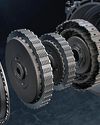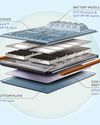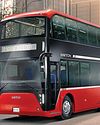
Modern cars can be described as technology on wheels when it comes to performance, efficiency and connected features. But making them as per prescribed norms by regulators and safety bodies means that there are times when the process has to factor in conflicting objectives. For instance, regulators want cleaner cars and high levels of active and passive safety features while users want all those and more with better miles per gallon and efficiency.
This is where structural engineers and various safety and production technologies come into play. Cars made in India are becoming safer and are now able to meet benchmark global safety standards thanks to the availability of state-of-the-art technologies like hot stamping.
Most sheet metal parts that go into making the body-in-white (BIW) are usually made using cold stamping of various grades of sheet metal. The BIW is created by welding together all of the vehicle’s structural components, minus moving parts, to make a unit construction.
“Of all the elements of safety of the car, the most important is the car body structure, due to the protection that it provides to passengers when a collision takes place,” says Glyn Jones, Country Manager and President, Gestamp India, a Tier I supplier to several OEMs in the country. The company operates three plants in the country and an R&D centre in Pune. It claims that it has helped increase awareness for safety standards that match those of the Global NCAP.
Gestamp India has introduced hot stamping facilities for OEM clients in India and several brands have engaged its services for various products like A-, B- pillars and various other structural components.
This story is from the 1st June 2023 edition of Autocar Professional.
Start your 7-day Magzter GOLD free trial to access thousands of curated premium stories, and 9,000+ magazines and newspapers.
Already a subscriber ? Sign In
This story is from the 1st June 2023 edition of Autocar Professional.
Start your 7-day Magzter GOLD free trial to access thousands of curated premium stories, and 9,000+ magazines and newspapers.
Already a subscriber? Sign In

Spain's Fersa Group invests in India-based Delux Bearings
Besides theRs100 croreinvestment, the Indian company gets access toadvanced technologies and bearings with arange of applications that willhelpinits global growth strategy, writes Manobhava Baruah.

Tata Autocomp to open compact dual-clutch transmission plant
Amidthe country’s growing need for personal mobility with easy manoeuvrability, comes the demand for vehicles with automatic transmission. Tata AutoCompisready tomovein writes Shruti Mishra.

Pankaj Munjal-backed Hero Motors raises equity from GEF Cap
The company willinvest Rs1,500 crore over thenextthree years andit expects 60 percent ofits turnover to come fromelectric vehicle parts. Itaims to becomea Global EV Solutions Company from India

New age thermoplastics for next-generation EV batteries
Saudi-based global materials major SABIChas developed cutting edgein fire-resistant polymers and flame-retardant materials that comply with various EV battery safety standards across the world.

Switch Mobility to meet growing e-bus demand with fresh capex
Oncourse for abillion-dollar business, the company is exploringa possibility of operating satellite factories across the country to serve different geographies, write ShahkarAbidi and Ketan Thakkar.

Kia India to invest Rs 2,000 crore in EVS, to introduce new e-RV in 2025
New investmentto drive R&D, infrastructure development and manufacturing capabilities. The company willlocally produce EVsin India with possibility of exports as well, writes Mayank Dhingra.

"The government has given enough time for indigenisation but the industry has not taken it seriously"
Amitabh Saran, Founder and CEO, Altigreen, shares his views on problems inthe EV industry and battery localisation solutions with Amit Vijay M.

TATA MOTORS SEES ONE INTWO CARS SOLDAS EVS BY 2030
The company aims to offer wider choices withnew EVs that may straddle a pricebracket of Rs20to 40lakhinthe coming years, writes Ketan Thakkar.

MG Motor India in expansion drive, to invest $100 million
The investment willbe usedtoramp up existing production capacity from1.2to1.4-15lakh units per annum atthe automaker's Halol plantin Gujarat, writes Ketan Thakkar.

"Technology and its multiplier effect are driving business transformations and customer experiences"
Technical Centre India is one of Continental’s largest research and development centres in the world, andasa Centre of Competence’ it also develops customised products for the BRIC countries.